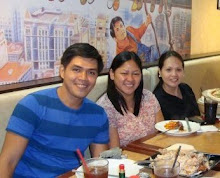http://www.alternativehealthjournal.com/article/computer_usage_can_be_a_serious_health_risk_for_everyone/3669
Abstract :
Much have been said about the advantages of using computers. It makes people's work faster and a lot easier. But, most of the people using computers are unaware of the serious health risks brought by its unnatural nature. Unnatural as looking directly to a source of light we are not created to look at. There is a considerable amount of information about health concerns on computer use, this article tends to identify, manage, minimize and treat computer related health conditions.
Three (3) things I learned :
1. Computer use by nature generates chemical and electrical imbalances and other stresses. Disorders develop over time and can be easily misdiagnosed.
2. Too much computer exposure may hinder learning (MacDonald, 2004) based on a study involving 175, 000, 15-year old students in 31 countries. The study observed that performance of students in math and reading had suffered for students with more than one computer at home.
3. Two decades of computer use could result to "computer burnout" that eventually could lead to serious complications if not diagnosed and treated immediately.
Reflections :
Computers exposed us to an artificial environment. The computer use environment makes us look directly at a source of light which is contrary to our natural way of never looking directly at the sun. So artificial that it goes beyond our natural well-being. But what really struck me is the idea of having a 'computer burnout'. That 10 years from now (counting my first computer hands-on), I will be experiencing negative health consequences due to the dangers of computer exposure. It is also not always true to say that computers help students improved on their school performance, a study shows it could actually harm students. The use of computers has its pros and cons. With health being the major issue here, people should minimize the risks of overexposure to computer environment. It is quiet alarming if computers continue to be as harmful as it is right now and if it does, people should have a valid reason to be scared of. Heard of some manufacturers taking extra measures on production and on some agencies working on standards to minimize the negative effects of computer use. Computer related diseases are also on the radar of medical practitioners. These are good developments to address the current situation. Given the current situation experienced by people using computers and the call for a health hazard free computer environment, the best way to avoid the consequences is the prevent it from happening that is an ounce of prevention is worth a pound of cure.


